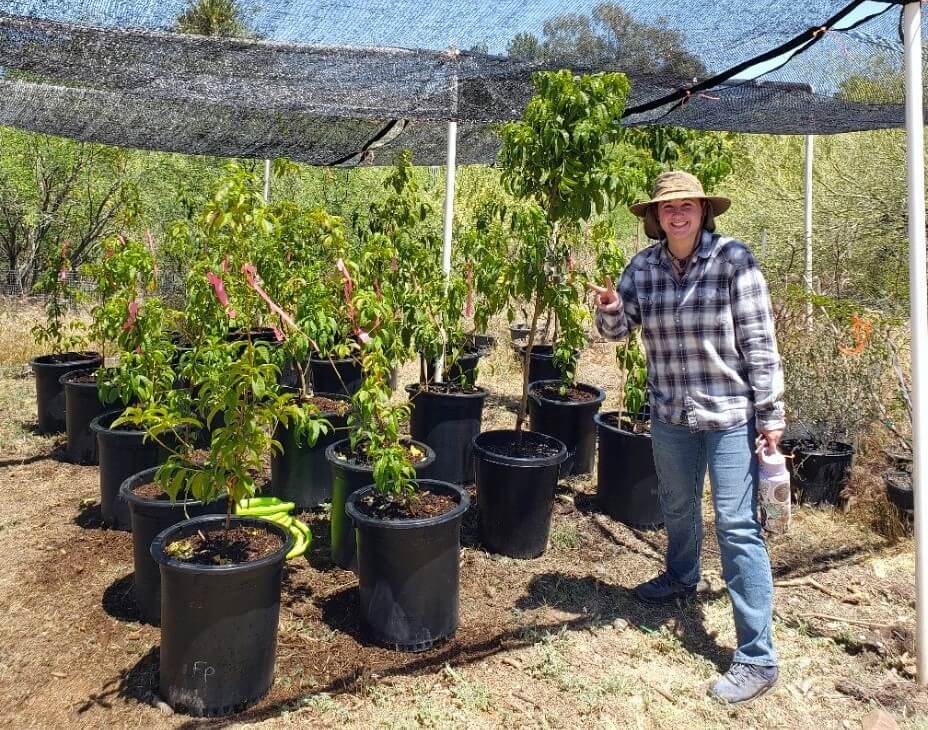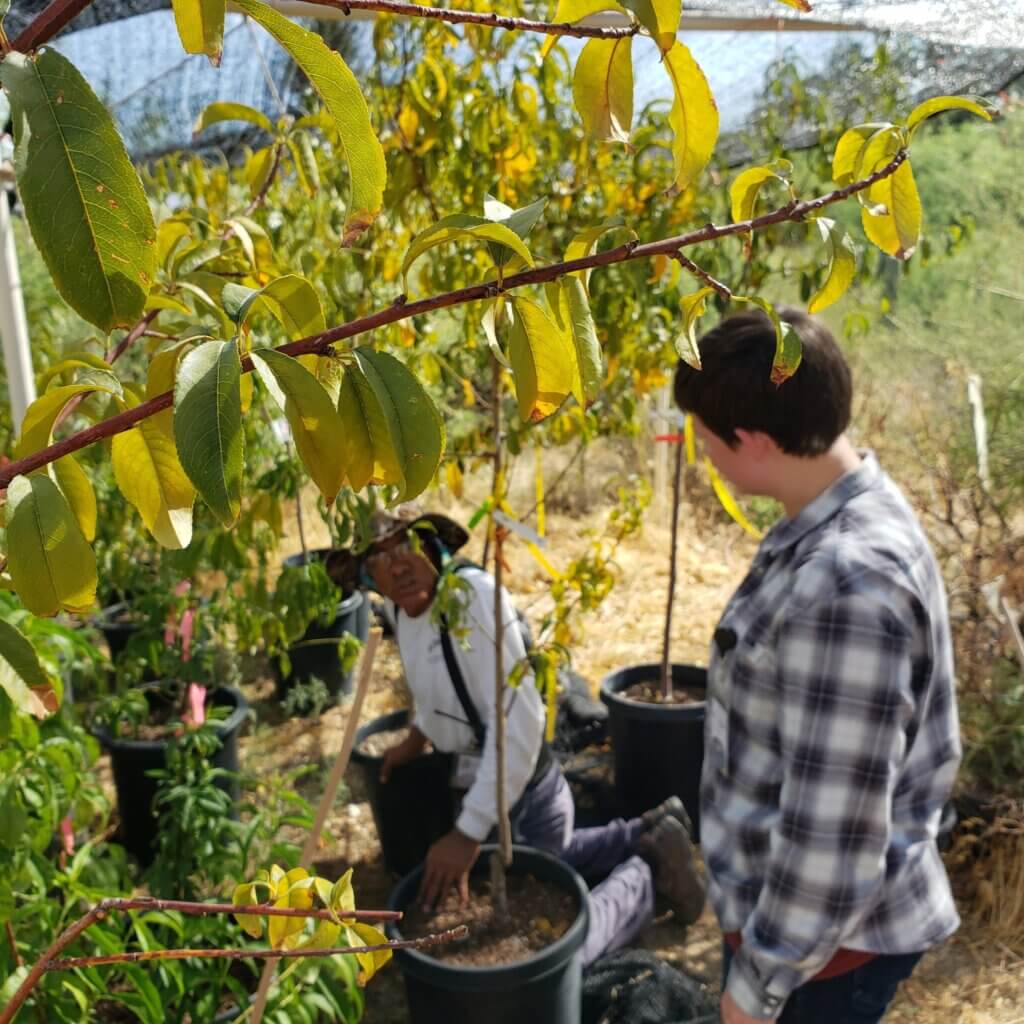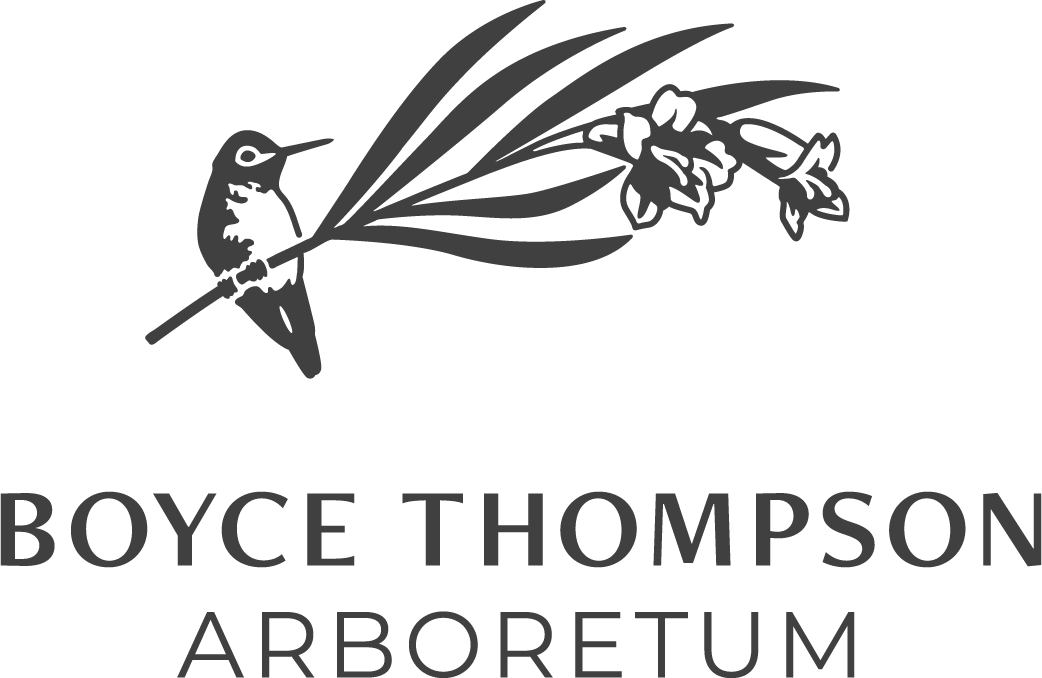Heat Adaptivity of Peaches:
Q&A with Researcher
Annie Weaver-Bryant

Here at Boyce Thompson Arboretum, part of our mission is to inspire appreciation and stewardship of desert plants, wildlife, and ecosystems through research. In support of our mission, we frequently host individuals who conduct important research onsite through the establishment of the Bernard “Bill” Benson Research Award in collaboration with Arizona State University. The Benson Award has committed $300,000 to further the Arboretum and Arizona State University research and educational aspirations.
Today, we are elated to introduce one of the Bernard “Bill” Benson Research Award recipients, Annie Weaver-Bryant. Annie is currently pursuing a Doctorate in Environmental Life Sciences with a focus on Botany at Arizona State University. Her studies have led her to conduct innovative research at Boyce Thompson Arboretum.
Join us in this exclusive Q&A as we explore her extraordinary work at the Arboretum and the intriguing study she is conducting on heat adaptation in peaches.
Tell us about your background. Why did you become a researcher? What drew you to this field?
I became a researcher because I have always been passionate about science and collaborating with other people. As an Environmental Scientist, and more specifically Ethnobotanist (researcher in the study of plants and people), I am able to tend to the Earth, connect with and impact others, and learn more about the history of our planet.
As someone who grew up in Globe, Arizona, I was most heavily influenced by other scientists and researchers in our community here in the Copper Corridor. I grew up going to Boyce Thompson Arboretum and was inspired early on by the Botanists that worked here.
Additionally, I can remember attending “More Kids in the Woods” summer camps in Globe that were put on by our community. The biggest draw to this work, for me, is being able to give back to the communities that uplifted me.

What are you researching at BTA?
I’m researching heat adaptation in the peach and I’ll be utilizing material from popular agricultural varieties as well as a variety of peach from the Diné (Navajo) Nation. Three of the agricultural varieties will be grown at BTA as it is positioned in the perfect environment for testing how heat and aridity affect plants.
What spurred this study?
The peach requires a relatively long period of dormancy in order to produce fruit. As temperatures rise, peaches will become more difficult to grow.
The Diné peach is one of the most heat-adapted varieties, and comparing it to other heat-adapted varieties of peach genetically will aid in our understanding of the genetic mechanism behind heat adaptation. Better understanding heat adaptation will allow us to improve crops agriculturally as well as support the orchards of the Diné Nation.
What does a day researching at BTA look like for you?
A typical day of researching at BTA, for me, usually entails watering and pruning my trees, weeding, and collecting samples. The samples are then taken back to ASU for DNA analysis, which takes the bulk of my time.
What is your favorite aspect of your research? What excites you about your work?
My favorite aspect of my research is the way in which I am able to connect with the land while also performing lab work. I am most excited about days in the field, especially when I get to come up and check on my trees.
Second only to the plants, I truly adore working with other people and I have felt so honored to have the opportunity to work so closely with the amazing folks here at BTA.
What do you want to achieve with your research?
I hope to improve our understanding of heat adaptation, not only for the peach, but for other crops as well. I also look forward to connecting more broadly with individuals both in and out of the botanical sciences.
